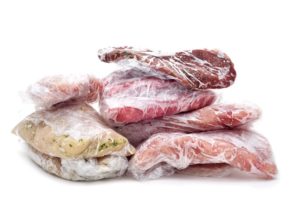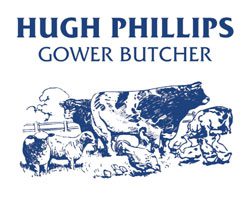 Following the season of over-indulgence, many of us will have fridges full of food that we are hoping to freeze. But we all also know that there can be risks when it comes to freezing meat and in particular care should be taken when re-freezing meat.
Following the season of over-indulgence, many of us will have fridges full of food that we are hoping to freeze. But we all also know that there can be risks when it comes to freezing meat and in particular care should be taken when re-freezing meat.
So, as the New Year comes in, we’ve developed this guide for freezing fresh meat. This approach will help you to plan your family meals and so save you both time and money in the long run.
Pre-packed cut meats
Many people purchase pre-packaged cut meat, such as chops and steaks, from the supermarket and toss it into the freezer on arriving home. A lot of the time we do not over-wrap the products nor do we label them with the date, weight or contents.
For those with a large freezer, this could become a problem and a waste of hard-earned money, as over time frozen meat will be susceptible to freezer burn, deterioration and rancidity. If precautions are not taken, this could occur sooner rather than later.
If you’re planning to freeze meat purchased fresh from the butcher, then it’s a good idea to add extra layers of wrapping with cling film or tin foil. This extra packaging prevents any air entering the package, which would then lead to freezer burn and cause the meat to dry out, lose its flavour, colour and texture.
The meat products that Hugh Phillips Gower Butchers supplies from our online shop, www.bestonlinebutcher.co.uk, comes in hygienically sealed, recyclable food grade film which is also suitable for freezing.
Storing Meat
Ideally, and for space saving and storage purposes, the meat should be divided into convenient sized portions for your needs and then tightly wrapped in cling film, freezer bags or heavy duty aluminium foil. All packaging must be moisture-vapour resistant and clean and all air should be excluded or squeezed out on sealing. Never wrap any food products in plastics carrier bags obtained from the supermarket, as the chemicals used to manufacture the bags may react with the food product.
It is important to label all the meat that you put into the freezer with the date, weight, contents and the date by which they should be consumed.
When purchasing meat from your local butcher, it is important that you freeze it as soon as possible after purchasing for quality of meat as well as food safety purposes. Fresh meat is highly perishable and should not be left out of the refrigerator or freezer for longer than two hours.
Meat products are susceptible to bacteria, which can cause food poisoning and illness. Therefore care must be taken when handling raw meat and you must ensure that all surfaces, utensils and especially your hands are clean.
Although meat products can be stored for many months in the freezer, after a certain amount of time, depending on the type of meat and amount of fat it contains, it will eventually go off and need to be discarded.
Meat and poultry will turn rancid, even if stored in the freezer, after a certain amount of time. This may be due to poorly wrapped products or incorrect packing being used. However, over time, these products will naturally turn rancid due to chemical changes that take place.
In order to prolong the freezer storage time and to ensure that spoilage of the product does not occur too quickly, it is best to trim all excess fat from the meat product before wrapping and storing in the freezer. In other words, the less visible fat on a product, the longer it will keep in the freezer. In saying this, cured meats such as bacon or ham, will not freeze for as long as other products, as the high quantities of salt contained within these products will also speed up the rancidity process.
Joints of Meat
Large joints of meat such as beef, lamb or pork should be placed in heavy-duty polythene bags and then tightly over-wrapped with cling film, ensuring that no air can enter nor any moisture escape. Make sure that the packaging is durable and that it will not tear during storage.
Our recommended freezer storage times are as follows:
- Beef joint store up to 8 months
- Lamb and pork joints store up to 6 months
- Beef steaks or chops store up to 6 months in the freezer; leaner meats with less saturated fat should be stored for no longer than 3 months
- Pork chops or steaks store for up to 3 months
- Lamb chops or lamb steaks store for 1 – 2 months.
- Minced meat is best divided into individual portion sizes and stored in polythene bags, rigid containers or in aluminium foil over-wrapped with cling film.
Best Online Butcher
If you have a particularly busy household then you may find it very convenient to order your weekly meat order from our online shop. In addition to individual cuts, we also sell meat boxes to help you mix up the weekly menu without leaving the comfort of your home.
To find out more, visit our website www.bestonlinebutcher.co.uk


